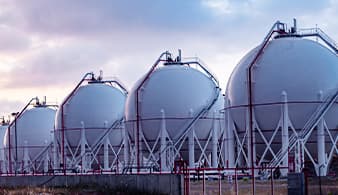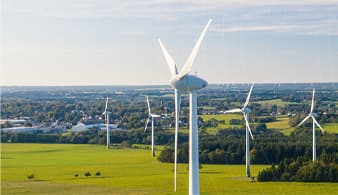As the largest economy and the largest energy consumer in Europe, Germany is central to the energy and commodity markets we cover. Our German team, based in Hamburg, provide detailed, insightful local commentary on these specialist markets every day with a range of dedicated services. Argus’ global expertise supports and enhances the solutions we offer German market participants, while our unique insight into the region proves invaluable to those trading with the country.
Key benefits
You can rely on our specialist coverage of the German energy and commodity markets
Trusted methodology
Argus price assessments are underpinned by the most robust, transparent and credible methodologies, developed with the industry to ensure our price assessments are a true reflection of how the markets trade
Local team, global view
With an experienced team based in Hamburg, Argus is uniquely positioned to provide the most local expertise and insights into the German markets and their unique needs, alongside global context and insight from the rest of the world
All key commodities
From oil and biofuels, to natural gas and hydrogen, to agriculture and fertilizers, Argus brings expert insight into prices and developments for all key energy and commodity markets
Argus Germany Services
Comprehensive coverage of the energy and commodity markets

Fuels

Greenhouse gas savings quota

Biofuels

AdBlue

Natural gas

LPG

Small-scale LNG

Hydrogen

Bitumen

Freight
Testimonial
German market participants are increasingly turning to Argus for our valuable, unique insights into the local and global markets. See what one client has to say about how Argus has supported their business.
“Argus has helped us reduce pricing risk through faster, uncomplicated access to independent data” - Kuttenkeuler Group
Services
Key German price assessments
About Argus and O.M.R.
In July 2020, O.M.R. Oil Market Report was integrated into Argus Media's German subsidiary, Argus Media Germany, and now operates under the Argus Media name.
Both Argus Media, established in 1970, and O.M.R. Oil Market Report, established in 1985, were founded as family businesses. Now, they combine their long history and extensive experience in market reporting.
Our team of experts are in daily exchange with market participants in Germany and around the world, providing you with trusted prices, latest news and useful analyses on the German and northwest European markets.
Useful resources
Contact details
We welcome comments and feedback from you. If you would like to discuss certain topics in more detail, please contact us.
- Telephone: +49 (0) 40 8090 3717
- E-Mail: germanfuels@argusmedia.com



